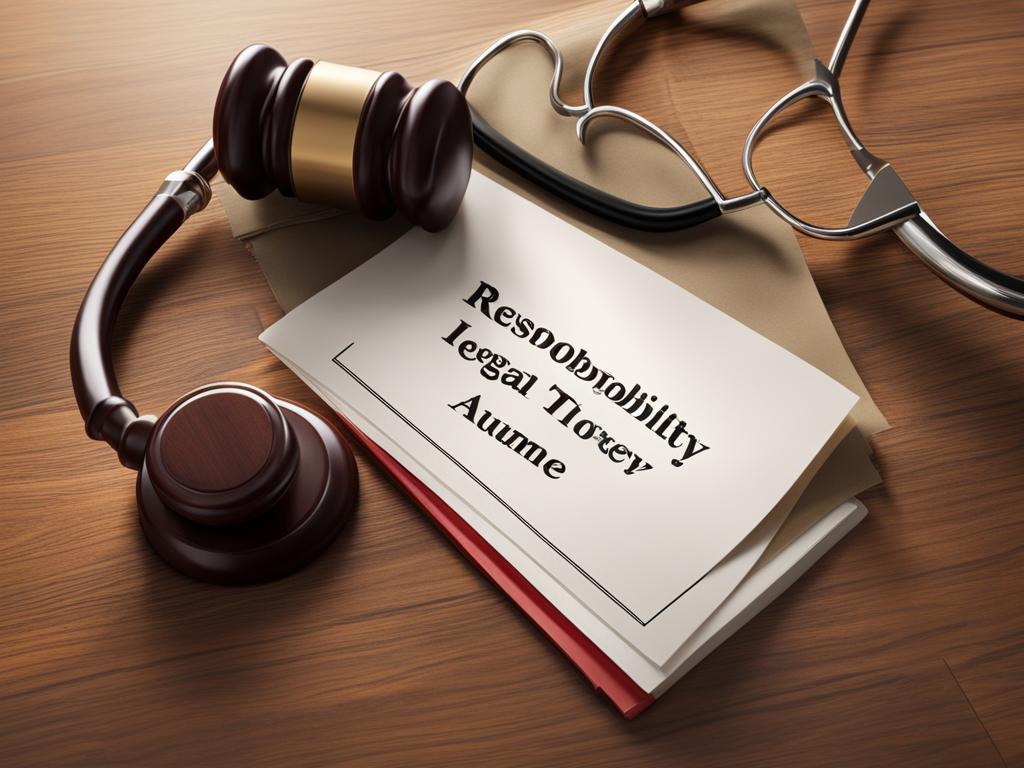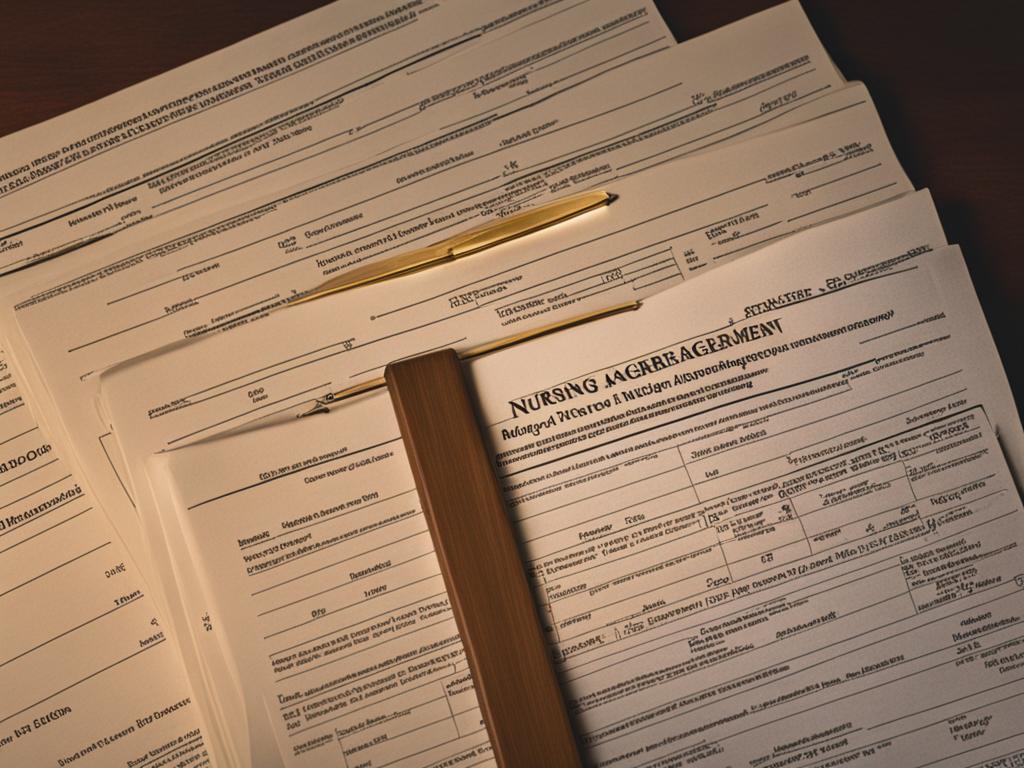Is Power of Attorney Responsible for Nursing Home Bills?
When it comes to nursing home expenses, many people wonder if having a power of attorney makes them responsible for the bills. It’s an important question to address, as understanding the legal obligations and responsibilities is crucial for both the attorney-in-fact and the elderly resident. So, let’s delve into the topic and shed some light on the matter.
Having a power of attorney does not automatically make the attorney-in-fact personally liable for the nursing home bills of the principal. Federal regulations dictate that only the “resident” can be held directly responsible for these expenses. Family members or other third parties are generally not held accountable for nursing home costs, except in specific circumstances. However, it’s important to note that some states have filial responsibility laws that could potentially impose financial obligations on adult children to support their indigent parents and pay their nursing home bills.
Key Takeaways:
- Having a power of attorney does not make the attorney-in-fact personally responsible for nursing home bills.
- Nursing home contracts are governed by federal regulations that hold only the “resident” accountable for the bills.
- Family members or third parties are typically not legally obligated to pay nursing home expenses.
- Some states have filial responsibility laws that may impose financial obligations on adult children to support their parents’ nursing home care.
- It’s important to understand the laws and regulations in your state to protect your financial well-being and ensure responsible caregiving.
Who is Responsible for Nursing Home Bills?
Nursing home contracts are regulated by federal regulations that state only the “resident” of the nursing home can have direct liability for bills. Family members or other third parties cannot be required to be personally liable for the nursing home bills as a condition of admission. The resident is responsible for paying their own bills, and the nursing home cannot hold anyone else personally liable for them.
According to federal regulations, nursing homes cannot demand or force the attorney-in-fact to assume personal responsibility for the bills and pay the debts out of their own pocket. The nursing home must obtain payment for the bills from the resident’s income or resources available for their care. The attorney-in-fact, acting under the power of attorney, has decision-making authority but is not financially responsible for the resident’s debts.
In summary, when it comes to nursing home bills, the liability lies with the resident. The power of attorney does not make the attorney-in-fact personally liable for the resident’s financial obligations. The attorney-in-fact’s role is to act on behalf of the resident, making decisions but not assuming personal financial responsibility. The nursing home cannot hold anyone else, including family members or the attorney-in-fact, personally liable for the resident’s bills.
Table: Who is Responsible for Nursing Home Bills?
| Party | Liability |
|---|---|
| Resident | Directly liable for the bills |
| Family Members or Third Parties | Not personally liable, except in limited circumstances |
| Attorney-in-Fact (under Power of Attorney) | Not personally liable but has decision-making authority |
Fiduciary Obligations as the “Responsible Party”
Some nursing home contracts may require a family member to sign as the responsible party for the elderly resident. Although the responsible party does not have direct liability for the bills, they do have certain fiduciary obligations. This means that they are legally obligated to make a reasonable effort to ensure that the resident pays their bills and may be required to apply for Medicaid on the resident’s behalf if their funds are depleted.
This position as the responsible party comes with responsibilities to act in the best interest of the resident and fulfill the contractual obligations. Failure to fulfill these fiduciary duties could result in a breach of contract lawsuit by the nursing home. It’s essential for family members to understand the terms and obligations outlined in the contract before assuming the role of the responsible party.
Below is a table summarizing the fiduciary obligations of the responsible party:
| Obligations | Description |
|---|---|
| Ensure payment | Making a reasonable effort to ensure the resident pays their bills |
| Apply for Medicaid | Assisting the resident in applying for Medicaid if their funds are depleted |
| Act in resident’s best interest | Making decisions that prioritize the resident’s well-being and financial stability |
| Fulfill contractual obligations | Complying with the terms outlined in the nursing home contract |
It’s important for individuals assuming the role of the responsible party to be aware of these obligations and to seek legal advice if needed. By understanding their fiduciary duties, they can ensure that they meet their responsibilities and avoid potential legal issues.
Filial Responsibility Laws
About half of the states in the U.S. have filial responsibility laws that impose a legal duty on adult children to provide financial support to their elderly parents. These laws are designed to ensure that parents receive the necessary care and assistance they need, particularly when they cannot afford it themselves. Filial responsibility laws generally require adult children to contribute towards their parents’ medical care, food, and housing expenses.
However, it’s important to note that these laws are rarely enforced. In most cases, elderly parents who are unable to pay for their nursing home bills qualify for Medicaid, a federal program that provides financial assistance for healthcare costs. Once an individual qualifies for Medicaid, the responsibility for their nursing home bills shifts to the program rather than their adult children.
While filial responsibility laws exist, they are not commonly used as a means to hold adult children personally responsible for their parents’ nursing home bills. It’s crucial for families to understand the specific laws in their state and consult with legal professionals to fully comprehend their rights and obligations when it comes to providing financial support to their aging parents.
| State | Filial Responsibility Laws |
|---|---|
| Alabama | No |
| Alaska | No |
| Arizona | No |
| Arkansas | No |
| California | No |
| Colorado | No |
| Connecticut | Yes |
| Delaware | No |
| Florida | No |
| Georgia | No |
Note: The table above provides a sample of a few states and whether they have filial responsibility laws. It is important to consult the specific laws in your state for accurate and up-to-date information.
Power of Attorney and Nursing Home Bills
Having a power of attorney to act on behalf of an elderly nursing home resident does not make the attorney-in-fact personally liable for their financial obligations, including nursing home bills. The power of attorney grants the attorney-in-fact the authority to make decisions and take actions on behalf of the resident, but it does not make them financially responsible for the resident’s debts. The resident remains legally obligated to pay their own bills, and the power of attorney does not change that.
While the power of attorney is not liable for nursing home bills, the decedent’s estate is responsible for paying them. The estate becomes a creditor like any other, and the bills would need to be paid from the estate’s assets. The power of attorney’s role ends upon the death of the resident, and their responsibility does not extend to the payment of nursing home bills.
To summarize, the power of attorney grants decision-making authority to the attorney-in-fact but does not make them personally liable for nursing home bills. The responsibility for paying these bills lies with the resident, and the estate assumes the responsibility after the resident’s death. It is important for individuals with a power of attorney to understand their role and obligations, ensuring they act in the best interest of the resident without assuming personal financial responsibility.

Table: Power of Attorney and Nursing Home Bills Responsibility
| Party | Responsibility |
|---|---|
| Attorney-in-fact | Not personally liable for nursing home bills |
| Estate | Responsible for paying nursing home bills after the resident’s death |
| Resident | Legally obligated to pay their own nursing home bills |
The Estate Is Responsible for Nursing Home Bills
When it comes to nursing home bills, the responsibility falls on the decedent’s estate. While the power of attorney is not personally liable for these bills, the estate becomes a creditor and is responsible for paying them. It is important to understand that the role of the power of attorney ends upon the death of the resident, and their responsibility does not extend to the payment of nursing home bills.
To illustrate this point further, let’s take a look at the following table:
| Bill Type | Amount Owed |
|---|---|
| Medical Expenses | $10,000 |
| Nursing Home Fees | $5,000 |
| Total | $15,000 |
As you can see from the table, the estate is responsible for the full amount owed, which includes medical expenses and nursing home fees. The power of attorney’s role is to make decisions and take actions on behalf of the resident, but they are not financially liable for the debts.
How Power of Attorney Works
A power of attorney is a legal document that grants one person, known as the attorney-in-fact, the authority to make decisions and take actions on behalf of another person, known as the principal. This document does not make the attorney-in-fact personally liable for the financial obligations of the principal, including nursing home bills. Instead, the power of attorney allows the attorney-in-fact to act as a decision-maker for the principal, ensuring their wishes and best interests are carried out.
The power of attorney does not establish an attorney-client relationship, nor does it imply that the attorney-in-fact is practicing law or providing legal counsel. It simply authorizes the attorney-in-fact to make decisions on behalf of the principal. While the attorney-in-fact has the power to manage the principal’s finances, this does not mean they assume legal responsibility for any debts or expenses incurred by the principal, including nursing home bills.

Power of Attorney Does Not Have an Attorney-Client Relationship
Although called a power of attorney, it does not imply that the attorney-in-fact is practicing law or providing legal counsel. The power of attorney grants legal authorization for the attorney-in-fact to make decisions on behalf of the principal but does not establish an attorney-client relationship. The attorney-in-fact acts in the best interest of the principal and carries out their wishes, but they are not legally responsible for any financial obligations, including nursing home bills.
“Having a power of attorney does not make the attorney-in-fact personally liable for nursing home bills.”
The power of attorney gives the attorney-in-fact the authority to make decisions, manage finances, and handle legal matters for the principal, but it does not make them legally responsible for the financial obligations of the principal. The attorney-in-fact’s role is to act as a representative and advocate for the principal, ensuring their wishes are carried out and their best interests are protected.
It is crucial to understand the distinction between the attorney-in-fact’s role and that of an attorney with an attorney-client relationship. While the power of attorney grants decision-making authority, it does not authorize the attorney-in-fact to provide legal advice or representation. If legal counsel is needed, it is important to consult with a qualified attorney who can provide appropriate guidance and support.

Understanding Legal Authorization and Decision-Making
The power of attorney is a legal document that allows the attorney-in-fact to act on behalf of the principal in various matters, including financial and healthcare decisions. It is important for both the principal and the attorney-in-fact to have a clear understanding of the scope of authority granted by the power of attorney document.
- The power of attorney must be executed according to the laws of the state where it is being used.
- The document should clearly outline the specific powers and limitations granted to the attorney-in-fact.
- The attorney-in-fact should keep detailed records of all decisions, actions, and transactions made on behalf of the principal.
- Regular communication between the principal and the attorney-in-fact is essential to ensure that the attorney-in-fact is acting in accordance with the principal’s wishes.
- The power of attorney may be revoked or terminated if the principal becomes incapacitated or no longer wishes to grant decision-making authority.
By understanding the legal authorization and decision-making responsibilities associated with a power of attorney, individuals can make informed decisions about their healthcare and financial planning, ensuring their wishes are respected and their best interests are protected.
Nursing Home Bills and Financial Obligations
When it comes to nursing home bills and financial obligations, it’s essential to understand the role of federal regulations. According to these regulations, nursing homes cannot hold third parties, including the attorney-in-fact, personally liable for the payment of bills. The responsibility for paying nursing home bills lies solely with the resident. It’s important to note that the attorney-in-fact, who holds the power of attorney, does not have the legal obligation to assume personal financial responsibility for these bills.
Although nursing homes may request that the attorney-in-fact use the resident’s funds to pay the bills, they cannot demand or force the attorney-in-fact to pay the debts out of their own pocket. Federal regulations explicitly prohibit nursing homes from holding third parties responsible for bills and require the facility to obtain payment from the resident’s income or available resources.

| Bills Responsibility | Payment Obligations |
|---|---|
| Attorney-in-fact | No personal liability |
| Resident | Directly responsible for payment |
| Nursing Home | Cannot hold attorney-in-fact personally responsible |
Understanding these regulations is crucial for both the attorney-in-fact and the resident. It ensures that the financial obligations are appropriately managed and that the attorney-in-fact is not burdened with personal liability for the nursing home bills. By adhering to the federal regulations, nursing homes can obtain payment from the resident’s income or resources, while protecting the attorney-in-fact from assuming financial responsibility.
State Laws and Residency Agreements
When it comes to nursing home bills and financial obligations, state laws and residency agreements play a crucial role in determining personal responsibility. While filial support laws exist in some states, they are rarely enforced, and most nursing home contracts cannot require family members to assume personal responsibility for the resident’s care or bills. It is important for family members to carefully read residency agreements and not co-sign if they do not intend to use their own resources to pay the bills.
Understanding the state laws in your jurisdiction is key to knowing the extent of your personal responsibility. Filial support laws, which exist in about half of the states, could potentially make adult children financially responsible for their parents’ nursing home bills. However, these laws are rarely enforced, and most elderly parents who cannot afford their care eventually qualify for Medicaid.
Residency agreements should be reviewed thoroughly to ensure that there are no clauses that assign personal responsibility for payments. By being knowledgeable about state laws and carefully examining residency agreements, you can protect yourself from potential financial obligations that you may not be willing or able to meet.

Summary:
- State laws and residency agreements determine personal responsibility for nursing home bills.
- Filial support laws, existing in some states, rarely hold adult children personally responsible.
- Thoroughly reviewing residency agreements is essential to avoid unintended financial obligations.
Table: State Laws and Filial Support
| State | Filial Support Laws |
|---|---|
| Alabama | No |
| Alaska | No |
| Arizona | No |
| Arkansas | No |
| California | No |
| Colorado | No |
| Connecticut | No |
| Delaware | No |
| Florida | No |
| Georgia | No |
Protecting Personal Savings and Family Discussions
When it comes to nursing home bills and financial responsibility, it’s crucial to protect your personal savings and have open discussions with your family. Understanding the rights and responsibilities as an attorney-in-fact for an elderly nursing home resident is essential in navigating the complexities of financial obligations.
One way to safeguard personal savings is by researching the filial support laws in your state. While these laws exist in some states, they are rarely enforced. However, being aware of them can help you make informed decisions about the financial support you may need to provide for your parents.
Having family discussions about how costs related to your parents’ healthcare should be handled is also important. Open and honest communication can help establish a clear understanding of everyone’s financial capabilities and expectations. Consider entering into caregiver agreements that outline responsibilities and fair compensation to ensure that the financial burden is shared equitably among family members.
“Open and honest communication can help establish a clear understanding of everyone’s financial capabilities and expectations.”
By taking a proactive approach and engaging in family discussions, you can protect your personal savings and ensure that financial obligations are managed fairly. It is crucial to be knowledgeable about the laws and regulations in your state, carefully review any documents or agreements related to nursing home care, and seek legal advice if needed. With the right preparation and understanding, you can navigate the financial aspects of caring for your loved ones with confidence.

Table: Financial Responsibility Checklist
| Financial Responsibility | Actions to Take |
|---|---|
| Evaluate personal savings | Assess your financial situation and determine how much you can contribute towards nursing home expenses. |
| Research state-specific laws | Understand the filial support laws in your state and how they may apply to your situation. |
| Have open family discussions | Talk openly with your family about financial expectations and responsibilities, ensuring everyone’s concerns are addressed. |
| Create a caregiver agreement | Establish a written agreement that outlines each family member’s responsibilities and fair compensation for caregiving tasks. |
| Seek legal advice if needed | If you’re unsure about any legal aspects or need guidance, consult with an attorney who specializes in elder law. |
Conclusion
Ultimately, the power of attorney does not impose personal liability for nursing home bills. The legal responsibility for these expenses rests solely with the resident. While certain circumstances may hold adult children or other responsible parties accountable for unpaid bills under limited conditions, these cases are uncommon. It is crucial to comprehend the laws and regulations of your state and meticulously review any relevant documents or agreements associated with nursing home care to safeguard your financial well-being and ensure responsible caregiving.
Having a power of attorney grants decision-making authority but does not create an attorney-client relationship or financial obligations. The attorney-in-fact acts on the principal’s behalf and carries out their wishes, but they are not legally responsible for any financial matters, including nursing home bills.
In conclusion, the power of attorney does not entail personal liability for nursing home bills. The responsibility for payment lies with the resident, and the attorney-in-fact is not obligated to assume personal financial responsibility. By familiarizing yourself with your state’s laws and regulations and carefully reviewing all relevant documentation, you can protect your financial interests and ensure fair and responsible caregiving.
FAQ
Is the attorney-in-fact responsible for nursing home bills if they have a power of attorney?
No, having a power of attorney does not make the attorney-in-fact personally liable for nursing home bills. The responsibility for paying nursing home bills lies with the resident.
Who is responsible for nursing home bills?
Nursing home bills are the direct liability of the resident. Family members or other third parties generally cannot be held personally liable for nursing home costs, except in certain limited circumstances.
What are the obligations of the “responsible party” in a nursing home contract?
The responsible party may have certain fiduciary obligations, such as making efforts to ensure the resident pays their bills and applying for Medicaid on the resident’s behalf if they run out of money. Failure to fulfill these obligations could result in a breach of contract lawsuit by the nursing home.
Are adult children financially responsible for their parents’ nursing home bills?
Some states have filial responsibility laws that could potentially make adult children responsible for their parents’ nursing home bills. However, these laws are rarely enforced, and most nursing home contracts cannot require family members to assume personal responsibility for the resident’s care or bills.
Does having a power of attorney make the attorney-in-fact financially responsible for nursing home bills?
No, having a power of attorney does not make the attorney-in-fact personally liable for nursing home bills. The power of attorney grants the attorney-in-fact the authority to make decisions on behalf of the resident, but it does not make them financially responsible for the resident’s debts.
Who is responsible for paying nursing home bills after the resident’s death?
The nursing home bills become the responsibility of the decedent’s estate. The power of attorney’s role ends upon the death of the resident, and their responsibility does not extend to the payment of nursing home bills.
How does a power of attorney work?
A power of attorney is a legal document that appoints another person to act on behalf of the principal. The attorney-in-fact becomes a decision-maker for the principal but does not take on legal responsibility for nursing home bills or any other financial obligations of the principal.
Does a power of attorney establish an attorney-client relationship?
No, the power of attorney grants legal authorization for the attorney-in-fact to make decisions on behalf of the principal, but it does not establish an attorney-client relationship. The attorney-in-fact acts in the best interest of the principal but is not legally responsible for any financial obligations, including nursing home bills.
Can a nursing home hold the attorney-in-fact personally liable for nursing home bills?
No, federal regulations prohibit nursing homes from holding third parties personally liable for bills. The nursing home must obtain payment from the resident’s income or resources available for their care.
Should family members be concerned about personal responsibility for nursing home bills?
Family members should carefully read residency agreements and understand their state’s filial support laws. Most nursing home contracts cannot require family members to assume personal responsibility for the resident’s care or bills. Open and honest discussions about financial responsibilities are important.
How can personal savings be protected in relation to nursing home bills?
Researching state filial support laws and entering into caregiver agreements that outline responsibilities and fair compensation can help protect personal savings. It is crucial to be knowledgeable and proactive to ensure financial obligations are managed fairly.

